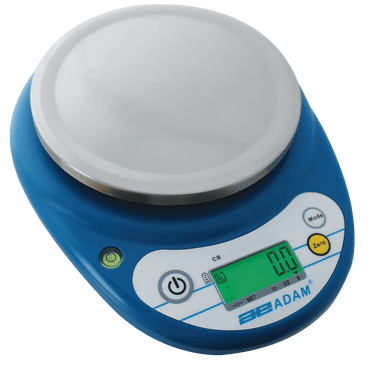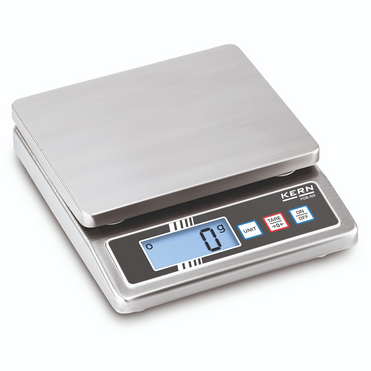
Calorie Counting Using a Food Scale
It’s no secret that regular exercise is hugely important when on a weight loss journey, but diet is also absolutely key to and is often the thing that people struggle with most.
A food weighing scale can used to help make calorie tracking easier and faster, and allow for users to really understand how portion control is key to maintaining a healthy lifestyle.
Do I need a food scale for counting calories?
The short answer to this is yes, regularly weighing out food items on a food scale will give a more accurate indication of your calorie intake. All food items come with calorie amounts printed on the packaging, but this can lead to guessing and therefore inaccurate results.
To take complete control of your calorie intake and ensure that you are on the right path, using a food weighing scale and some form of food log is a must.
Do food scales help you lose weight?
Food weighing scales are one of the most important tools for anyone on a weight loss journey, especially if you are just beginning. As mentioned above, it gives a more accurate representation of your daily calorie intake and allows you to remain in a calorie deficit.
Not only this, but it teaches you to recognise the correct portion size for you. Most people are completely unaware of how many calories are in the food they eat, and once you begin using a food scale for weight loss you begin to have a better understanding of how this works. Even foods we may think of as being ‘good’ for us can contain high amounts of calories – did you know 50 grams of chia seeds for example contain well over 200 calories? That’s not to say we should never eat chia seeds, but it's important to know how much is right.
Weighing your food will also help to create healthy eating habits over time, and as you begin to adjust to your new diet eventually it will take less and less effort. Eventually, the process will become second nature and you will be able to weigh and eat in no time at all.

How to use a food weighing scale
Using a food weighing scale is easy, but there are some key things that need to be understood to achieve the best results.
Start by setting up your food weighing scale on a flat surface and turn on, remembering to use the tare function if weighing on a plate or container. Next, simply add the food items to the scale and record the weight.
Some food weighing scales will come with helpful functions such as percentage weighing – a feature that allows users to weigh a subject as a percentage of an overall weight to ensure the correct balance is achieved at mealtime.
It’s generally recommended to weigh out raw ingredients rather than cooked as cooked items may change in weight. For example, boiling a potato increase the weight, but not necessarily increase the number of calories in the food. Whether you weigh before or after cooking, just make sure to keep it consistent to avoid major discrepancies.
Things to consider when buying a food weighing scale for weight loss
Before you know how to count calories with a scale, you first need to get the right scale for your needs. The term ‘food weighing scale’ can be quite broad and there are many different features and functions that can make them right for you. Here are some key considerations to make:
Capacity – Food weighing scales come with all kinds of maximum capacities, so it’s crucial you find the one that’s right for you. For portion control and weighing out individual ingredients, a compact bench scale with a lower maximum capacity should be enough, whereas for larger batch weighing or meal prepping, you may want something that can take a heavier weight.
Portability – This can be important if you plan to weigh out your food on the go where there may not be a power socket, or for weighing out pre-workout mixtures or protein powders in the gym. Rechargeable batteries and a compact, easy to carry design are what to look out for.
IP rating – An IP rating is what determines the level of waterproofing a weighing scale has and is useful if you require extra protection for your food scale. If you regularly want to weigh messy subjects such as raw meat or fish then it can be a good idea to get an IP rated food scale to ensure good hygiene is maintained.
To understand IP rated weighing scales better, please see our blog post.
Price – Budget is an important one as you want to be paying the right amount for what you need. Before buying your food weighing scale, ensure that you understand what features and functions you need to help keep costs to a minimum.
The best food scale for calorie counting
Inscale stocks a wide range of food scales for calorie counting – here are some of the best:

Adam CB Compact Balance
The Adam CB Range is one of the best food scales for weight loss as it combines a simple to use design with just 2 buttons with a durable build of tough plastic alongside a grade-304 weighing pan. This is the perfect scale for those needing a quick, no-nonsense scale at an affordable price.

Kern FOB-S Stainless Steel Bench Scale
The Kern FOB-S Stainless Steel bench Scale is another food scale with a fully stainless steel design for easy cleaning. There is also a 9V block battery that gives up to 20 hours of battery live to ensure that you’re never left without power.
For any more information on the best food scale for calorie counting, please contact a member of our team and we will be happy to help. Our phone number is 01908 972660 or you can Get In Touch" target="_blank">Get In Touch with us.

Leave a comment